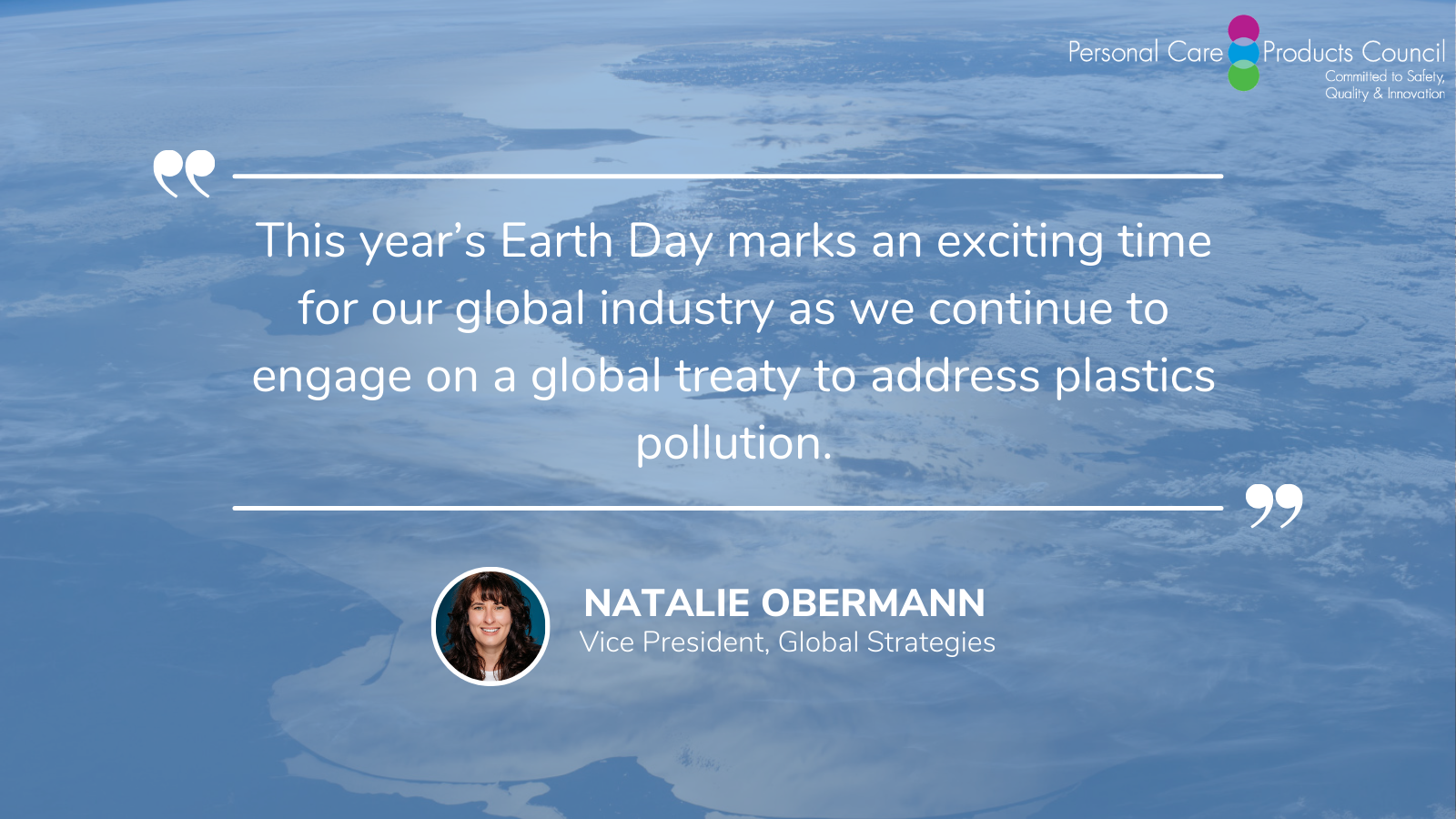Supporting a Global Plastics Pollution Treaty for a More Sustainable and Beautiful World
By Natalie Obermann
Vice President, Global Strategies
Our industry strongly supports this global effort to address plastics pollution through improved waste management and recycling systems by promoting innovation and eco-design, and by reducing the production and use of virgin plastic where possible and beneficial to the environment. We believe that promoting a circular and sustainable economy is intrinsically related to solving this issue. Our industry first voiced its support for the agreement when the United Nations (U.N.) Environment Assembly’s announced the March 2022 resolution, which initiated the treaty negotiations.
As the U.N.’s intergovernmental negotiating committee meets on the agreement in Ottawa, Canada, this week, PCPC and our member companies are participating in these discussions to provide industry’s perspective. PCPC has been working closely with our cosmetics association colleagues from around the world to develop global industry positions on the proposed treaty in order to speak with one global voice. This negotiation in Canada is the fourth of five sessions, with the U.N. aiming to complete this process by the end of 2024.
There is a significant amount of global political support among U.N. Member States for a legally binding treaty aimed at reducing plastic pollution and promoting economic circularity. However, some important questions are still being negotiated, such as whether the treaty will address environmental sustainability beyond marine pollution such as chemical management and Extended Producer Responsibility (EPR) schemes.
The final result of this negotiation process will be a formal, legally binding treaty — the U.N. Plastics Pollution Treaty. While not all countries involved in the negotiations may ultimately sign the final treaty, we expect companies in today’s global marketplace will nevertheless adapt their business operations to support a circular economy and reduce plastics pollution. Given the global nature of our business and supply chains, PCPC member companies will be impacted by the Treaty outcomes regardless of which countries sign.
The global cosmetics and personal care products industry is proud to contribute to the well-being of people and the planet by integrating sustainability throughout product lifecycles. This Earth Day, we look forward to continuing to work with all stakeholders of the U.N. Plastics Pollution Treaty who share the common objective of creating a more sustainable and beautiful world.

